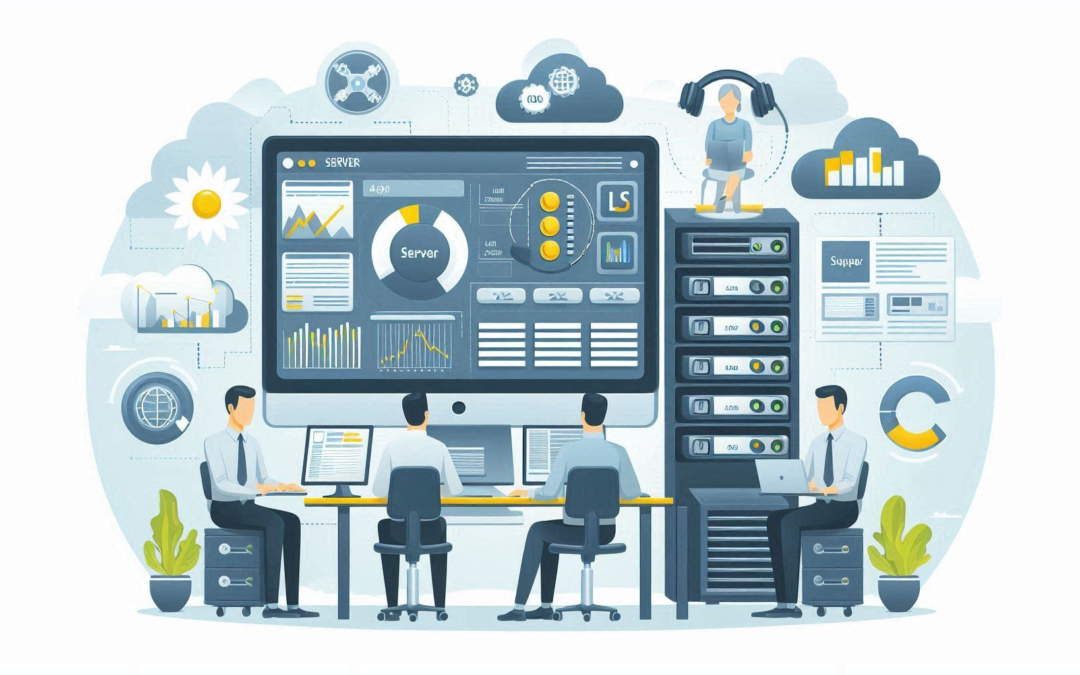If you’re overseeing a Learning Management System (LMS), you understand the importance of delivering a seamless experience for your learners. But have you thought about how server management support is key to that success? Let’s explore why effective server management is crucial for your LMS and how it contributes to a smooth learning experience for everyone involved!
1. What is Server Management Support?
What It Means:
Server management support involves the maintenance, monitoring, and optimization of the servers that host your LMS. This includes ensuring that the server is secure, performing well, and available whenever your users need it.
Why It Matters:
A well-managed server is the backbone of your LMS. Without proper support, you might encounter downtime, slow loading times, or even security breaches, all of which can disrupt the learning experience.
2. Reliability is Key
What It Means:
Reliability in server management means your LMS is up and running whenever learners need it, with minimal interruptions.
Why It Matters:
Imagine your students trying to access course materials right before a big exam, only to find the LMS is down. Frustrating, right? Consistent server performance ensures that learners can access content anytime, leading to higher satisfaction and better outcomes.
3. Performance Optimization
What It Means:
Server management involves tuning your server for optimal performance, which includes monitoring resource usage, balancing loads, and ensuring fast response times.
Why It Matters:
An optimized server means faster loading times for your LMS. This is especially important when you have many users accessing the platform simultaneously. A speedy experience keeps learners engaged and focused on their studies rather than waiting for pages to load.
4. Scalability for Growth
What It Means:
As your organization grows and the number of users increases, your server management needs will change. Effective server management allows for scalability, meaning your LMS can handle more users without a hitch.
Why It Matters:
Scalability ensures that your LMS can adapt to changing needs—whether that’s onboarding new employees or accommodating a larger student body. Without it, you risk performance issues during peak usage times.
5. Security First
What It Means:
Server management support includes implementing security measures to protect your LMS from threats like data breaches, malware, and other cyberattacks.
Why It Matters:
Security is paramount in any online learning environment. Learners trust you with their personal information, and protecting that data is not just a responsibility; it’s a necessity. Regular security updates and monitoring can prevent costly breaches and maintain user confidence.
6. Regular Backups
What It Means:
Part of effective server management is scheduling regular backups of your LMS data. This means creating copies of course materials, user data, and any other important information.
Why It Matters:
In the event of a server failure or data loss, having regular backups means you can quickly restore your LMS without losing valuable content. This minimizes disruption for your learners and maintains the integrity of your educational offerings.
7. Troubleshooting and Support
What It Means:
Server management includes ongoing troubleshooting and support for any issues that arise. This could be anything from connectivity problems to software glitches.
Why It Matters:
Having a dedicated support team means you can quickly resolve issues before they escalate, ensuring that learners can continue their studies without unnecessary interruptions.
8. Analytics and Reporting
What It Means:
Effective server management can provide insights into user activity and system performance through analytics and reporting tools.
Why It Matters:
Understanding how your LMS is used helps you make informed decisions about future improvements. You can identify which courses are most popular, how long learners spend on the platform, and where users may be experiencing difficulties.
Conclusion:
The Backbone of Your E-Learning Experience
In today’s digital landscape, server management support is an essential component of a successful Learning Management System. By prioritizing reliability, performance, security, and support, you can create a smooth learning experience that keeps your users engaged and satisfied.
Are you currently using server management support for your LMS? Have you encountered any challenges or successes in this area? I’d love to hear your experiences and insights in the comments! Let’s work together to ensure that our e-learning environments are as effective and enjoyable as possible!






